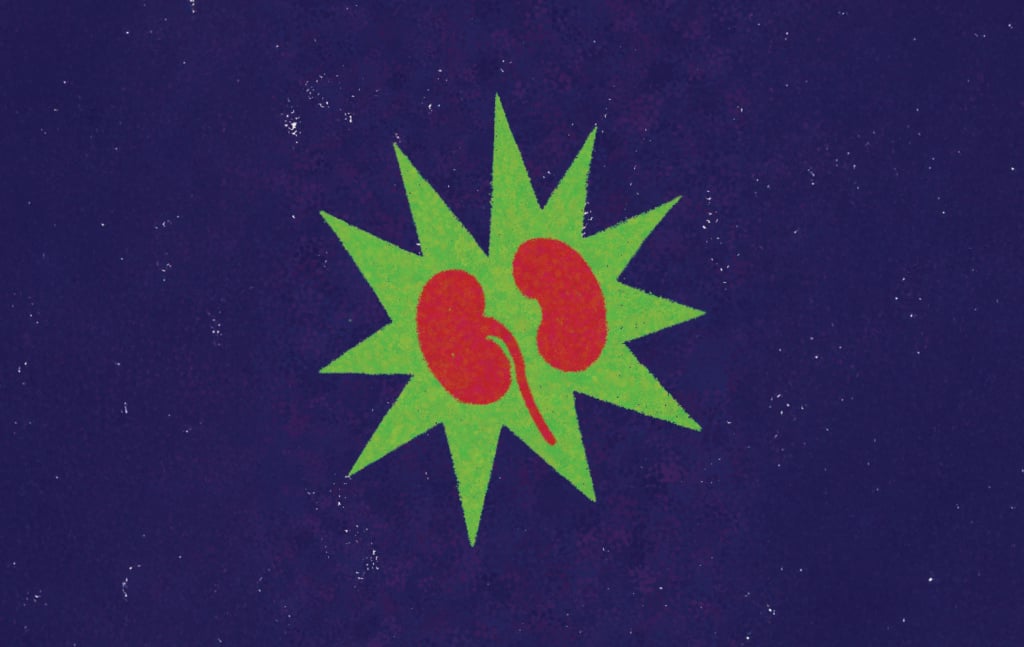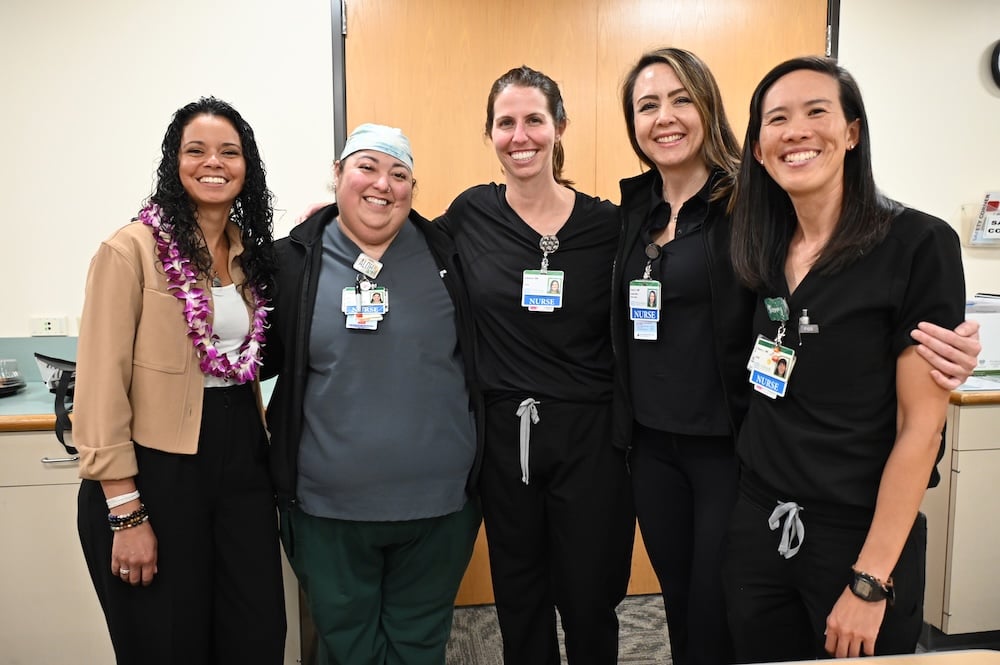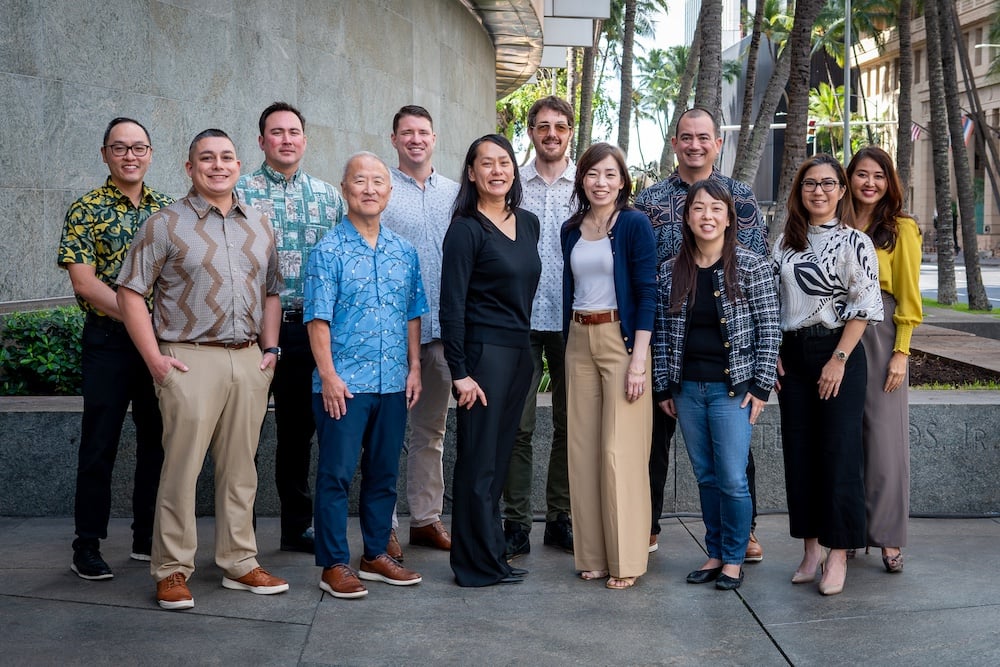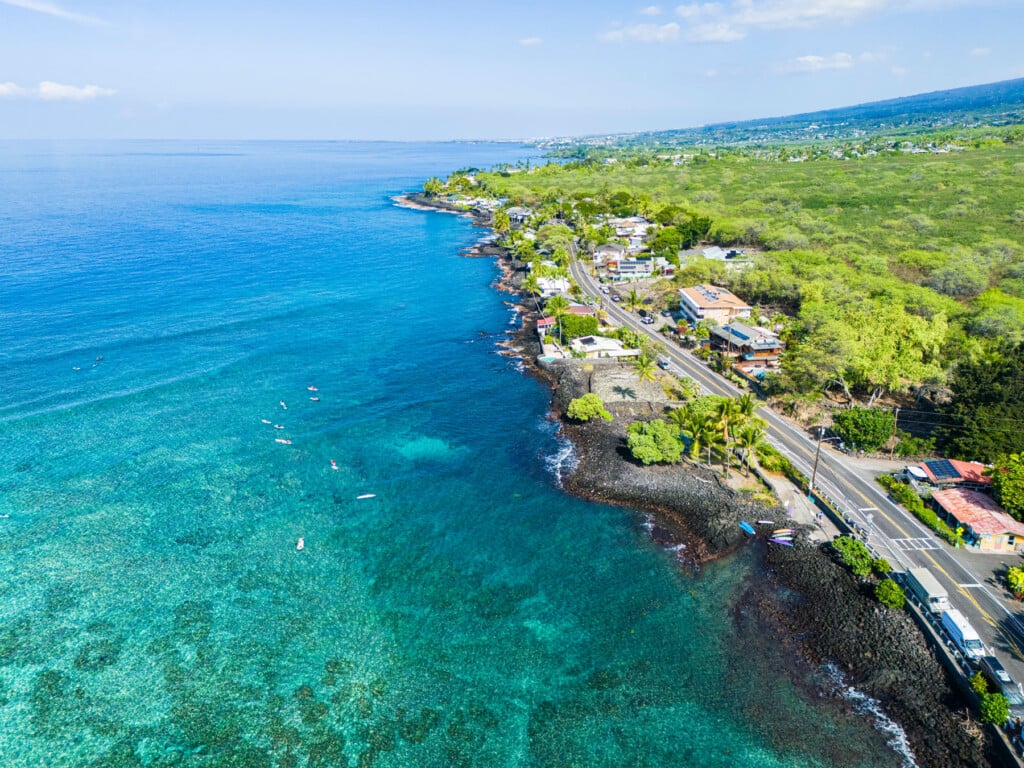One Community, Many Hands
Kaiser Permanente and its many community partners are committed to Maui's continued path to recovery.
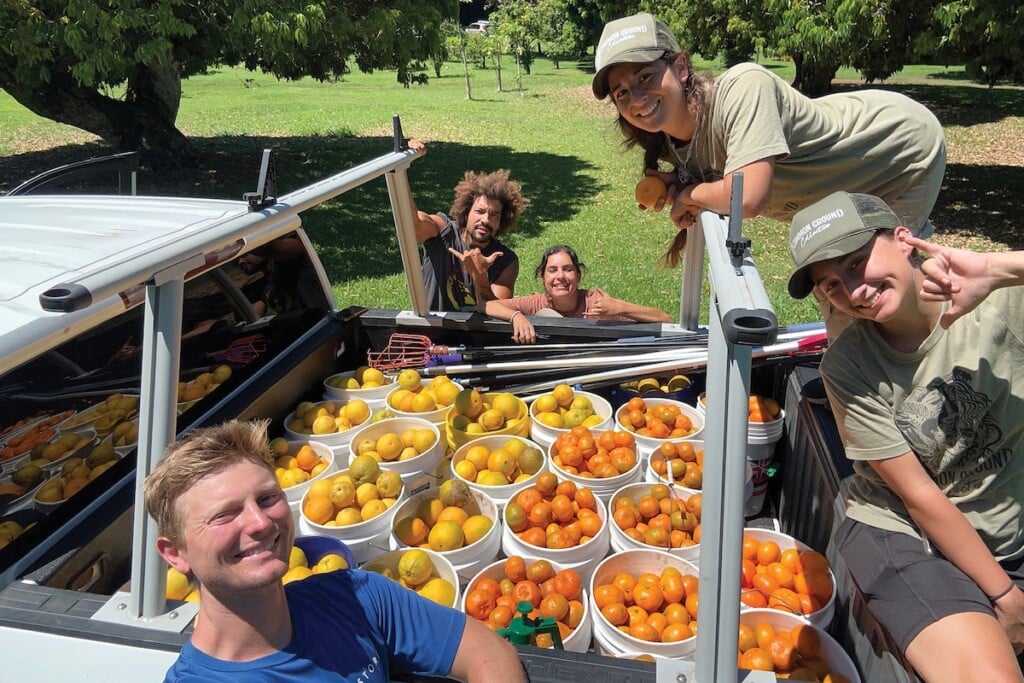
Stronger Together
Philanthropic initiatives such as the Maui Recovery Funders Collaborative and Funder Hui, help streamline funding and expand awareness of community needs.
Maui’s recovery from the devastating August 2023 wildfires is a long journey. It’s currently in the recovery and stabilization phase, the third of four phases as outlined by the Hawai‘i Community Foundation — and the one that will take the longest and cost the most money. It focuses on rebuilding, strengthening health, and supporting community organizations.
Despite the challenges, progress is being made through a combination of community-led initiatives and collaborative philanthropic efforts.

Maui United Way helped fund a food security program with the nonprofit Our Kupuna that delivered groceries to Maui fire-impacted seniors. | Photo: Courtesy Maui United Way
Among these, the newly formed Maui Recovery Funders Collaborative plays a pivotal role. It was established in January by the Hawai‘i Community Foundation, Maui United Way, and Kaiser Permanente to bring together a philanthropic network of organizations to support critical recovery areas, such as housing, behavioral health, economic development, and cultural preservation.
The Collaborative allows nonprofits to apply for multiple grants from a single-entry point, reducing time and effort. “The concept is that this isn’t a pooled fund, it’s a pooled application,” says Keanu Lau Hee, senior director for the Maui Recovery Effort at the Hawai‘i Community Foundation.
“The Maui Recovery Funders Collaborative streamlines the application process for nonprofits, reducing administrative burden while expanding access to critical support. Just as importantly, it serves as a shared platform for funders to view Maui’s recovery landscape collectively,” says Lau Hee. “By exchanging information and insights, we’re able to coordinate funding, identify unmet needs, and collaborate on strategic investments. This collective approach ensures that individual philanthropic efforts are more aligned, impactful, and responsive to the evolving needs of the community.”
Nonprofit applicants will save time, Lau Hee says, because they’ll no longer have to seek out each funder individually to ask for assistance. And it’s good for funders, too. Through the Collaborative, they’ll know right away what projects need funding next.
One of the founding members of the Collaborative, Maui United Way, has both written and fiscally sponsored grant proposals for many organizations since the fires and has seen firsthand how this new approach makes the process more efficient. “Prior to the Collaborative, it was very time-consuming, and we had a lack of capacity to write all of grants our community needed,” says Jeeyun Lee, director of impact at Maui United Way. She says the Maui Recovery Funders Collaborative will “help streamline that process and create more accessibility for newer, more grassroots organizations as well as existing nonprofits within the realm of philanthropy.”
Since the Collaborative was formed in January, a dozen members have joined and over $5 million has been distributed. Discussions are ongoing, with members meeting several times a month to examine recovery efforts.
“Through our conversations with funders, nonprofits, and community leaders, it became clear that a more coordinated approach was needed — one that reduced burdens on applicants and helped funders move in alignment,” says Kehau Meyer, senior program officer for the Maui Recovery Effort at the Hawai‘i Community Foundation. “The Maui Recovery Funders Collaborative formalizes that vision into a model that supports shared strategy, collective accountability, and real-time responsiveness. It’s a structure built with community partners that we believe can be replicated to strengthen recovery efforts here and beyond.
“Kaiser Permanente has been an incredible partner in the health space,” says Meyer. “Not only have they invested significantly in urgent care needs, but they also stood up clinics quickly and transparently shared their strategies and lessons learned. That kind of openness has strengthened the entire effort.”
Widespread Impact
Over the last two years, Kaiser Permanente has expanded its reach by offering free health care, supportive services, and health insurance for those affected by the disaster, while continually seeking ways to strengthen long-term community recovery.
“That level of thought and care for the community is hard to capture. But you know, just the commitment they’ve made to both supporting the backbone infrastructure of the Collaborative as well as their continued presence in our discussions is a huge contribution to Maui’s recovery,” says Lau Hee.
Kaiser Permanente also supported the Maui Wildfire Exposure Study (MauiWES), which assesses public health impacts from the fires, and provided critical funding to the Common Ground Collective nonprofit, whose mission is to increase food security.

Common Ground Collective, a nonprofit promoting food security, organized efforts to purchase food and feed Maui fire survivors | Photos: Courtesy Common Ground
“It was crucial,” Jennifer Karacas, executive director of the Common Ground Collective, says of the funding. The collective has played a vital role in Maui’s recovery by filling gaps in food access. “We couldn’t have done it without them and other funders.”
Additionally, Kaiser Permanente is a philanthropic partner of the nonprofit Funder Hui, an association of funders and philanthropic-serving organizations that launched in 2020 in the wake of the COVID-19 pandemic.
“Kaiser Permanente provided a grant to Funder Hui, which allowed us to continue these really powerful community convenings on Friday mornings,” says Ashley Lukens Wilder, director of the Funder Hui. “In those, you really see us navigating what’s happening, and who’s being affected, and how they are being affected, and how resources are being mobilized.”
Although Funder Hui and the Maui Recovery Funders Collaborative are both made up of funders, they each have distinct purposes. Funder Hui explores a broad range of topics, engages with subject matter experts, and facilitates discussions on how to collectively respond. The Collaborative is focused specifically on supporting and funding Maui’s recovery.
Since 2020, Funder Hui has organized over 150 in-person and virtual community-led conversations about a variety of topics, including Maui’s recovery status and needs.
“The Kaiser Permanente team was in it from the moment things started to unfold,” Wilder says. “What I observed was a really deep commitment to listening to the community and really trying to understand what community needs were, not just immediate needs, but also long-term visions for health and wellness and resilience.”
And as recovery continues, philanthropic initiatives like these, grounded in collaboration and collective dedication, help to accelerate Maui’s path ahead.

Left: Maui resident Kristina Silva-Pedrero is pursuing her clinical license | Right: Hawai‘i Island Community Health Center is one of the sites for the Hawai‘i Mental Health Workforce Accelerator Program | Photos: Courtesy Hawai‘i Island Community Health Center
Growing the Mental Health Care Workforce
Kaiser Permanente is investing in Hawai‘i’s mental health future workforce through a UH postgraduate program.
More than 50 million Americans are living with mental illness, yet there is only one mental health provider available for every 350 people. That means that nearly 55% of adults with mental health conditions can’t get the treatment they need, according to the National Council for Mental Wellbeing.
“Most therapists are maxed out. They have waiting lists for individual type therapy and clinical services. Job postings often go unfilled because there’s much greater need than there are people to fill those positions,” says Aimee Chung, field education coordinator at the University of Hawai‘i Thompson School of Social Work & Public Health. “Although we put out a lot of graduates every year, it’s still challenging to meet the need in the community.”
Last year, the Thompson School of Social Work & Public Health launched the Hawai‘i Mental Health Workforce Accelerator Program through a partnership with Kaiser Permanente. The program aims to increase the number of qualified licensed mental health and substance use treatment clinicians by reducing the barriers to licensure. Right now, obtaining a license is expensive and must be pursued after graduation.
“Kaiser Permanente wanted to look for ways to give back to the community and expand the clinical workforce, and therefore, expand the number of community members able to receive mental health services,” says Chung. “And it’s not just about expanding, it’s about diversifying. We want a workforce, a clinical workforce, that looks like the community.”
Overcoming Barriers
Health centers, nonprofit providers, and medical institutions can apply to participate in the Workforce Accelerator program, and if chosen, they can hire full-time employees through the initiative. Chung says that 22 sites have applied and over 100 potential job candidates have expressed interest. Candidates must already have their master’s degrees and the desire to achieve licensure in two years. The program’s goal is to get 20 people licensed over the course of the two-year grant.
The benefits are significant for candidates, who in some cases would have to pay for the required 3,000 hours of supervised clinical social work experience on their own. In the program, Kaiser Permanente covers the costs and the employee is paid a stipend.
A recent graduate and Maui resident, Kristina Silva-Pedrero wasn’t sure that she had the capacity to pursue her clinical social worker license after the Lahaina wildfires. “We lost our house and my son was 5 days old. All these things happened, so I was going to put that off until we could rebuild our ancestral home, or until we found stability again and a sense of normalcy,” Silva-Pedrero says. “But because of this program, I was able to find employment.”
Silva-Pedrero was in the Accelerator’s first cohort and works at one of the approved program sites, Catholic Charities Hawai‘i. She says she is over halfway to completion and the program has saved her a lot of money. “It costs like, oh gosh, anywhere from $1,000 to $3,000 for just licensure. It’s a lot and that’s not including what people pay for supervision hours,” says Silva-Pedrero. She approximates the cost she would have had to pay to find a supervisor on her own as anywhere between $85 to $150 an hour.
In the program, Kaiser Permanente covers the costs of clinical supervision and supplements candidates’ salaries. Candidates also receive support for study materials and fees associated with testing. “Normally, you’d have to pay for that, and that’s a lot of money,” says Silva-Pedrero.

Hawai‘i Island Community Health Center believes the Accelerator program will increase on-island mental health workforce recruitment
Rural Impact
On Hawai‘i Island, the Hawai‘i Island Community Health Center is another Accelerator site. The shortage of on-island therapists has led some centers to recruit outside of Hawai‘i, but folks at the Hawai‘i Island health center hope that programs like the Accelerator will assist in developing a bigger local workforce.
“We’ve had this goal of really growing our own therapists, not only in the state, but within our county,” says Katherine May, behavioral health director at the Hawai‘i Island Community Health Center, which reaches underserved and at-risk populations and provides care across the island. “We’re rural health on Hawai‘i Island, and so if we can grow our own, it allows us to have providers who are from the communities that they’re serving, that have knowledge of the cultures and the communities that they’re working within, and that really helps us build practitioners.”
Experience has shown that talent from outside of Hawai‘i is easy to find and hard to retain. “There’s a huge need for culturally aware therapists from Hawai‘i. It’s a very unique place culturally, with the diversity, in conjunction with just apparent lack of resources out here, so it’s a unique place to practice,” says Brandon Kang, clinician supervisor for the Hawai‘i Island Community Health Center.
“I think being able to see the community need and then create and grow therapists from our community has really been a big need, and I hope it continues,” Kang says.
Room to Breathe
Maui schools are prioritizing mental health and well-being for teachers and staff. Lahainaluna High School and Lahaina Intermediate School opened specially designed wellness rooms on their campuses last year with support from Kaiser Permanente.
These dedicated spaces offer teachers and staff members, many of whom were impacted by the wildfires, a place to relax, decompress, and recharge. Unlike faculty break rooms, which are busy facilities and sometimes utilized for other purposes, wellness rooms provide a calm space just for staff with massage chairs and yoga mats.
“The wellness room is more than a break room; it is a sanctuary. It has lounge areas with comfortable chairs and couches that were donated by a local hotel. There are games and puzzles for staff members to play,” says Nicole Heinlein, vice principal of Lahainaluna High School.
“The teachers never had a space on campus to congregate and relax together. Some would hang out in each other’s classrooms, but it wasn’t the same,” continues Heinlein. “We needed a common space to foster camaraderie and cultivate a positive campus culture among our staff, from teachers to café workers and custodians.”
Teachers and staff can access the wellness rooms any time of day. They can grab a snack or a drink, cool off in the air conditioning, stretch, or just enjoy some quiet time. The spaces fulfill a long-standing need expressed by the schools’ teachers and were brought to life through a partnership between the Parent Teacher Student Associations (PTSA) and Kaiser Permanente.
“Teaching is a very challenging career and for teachers to be their best, they need to have the resources to mentally, emotionally, and physically feel good,” says Stacy Bookland, principal at Lahaina Intermediate School. “It will hopefully reduce stress, promote self-care, and reduce staff absenteeism.”
At Lahaina Intermediate, PTSA members “painted, cleaned, and organized the space; they brought in a small fridge, water dispenser, furniture, and snack boxes,” Bookland says. “Kaiser Permanente’s role was critical for our PTSA to purchase the supplies needed for the staff wellness room. Without their financial contribution, we would not have been able to create the space.”
The schools are now witnessing firsthand how the spaces are uplifting their staff. “Teachers might see teachers they don’t normally encounter on campus in the wellness room and get a chance to catch up and talk story, even for a few minutes,” says Heinlein. “Walking into our wellness room always brings a smile to my face when I see teachers enjoying themselves, chatting, smiling, and having the space to enjoy their time together.”



